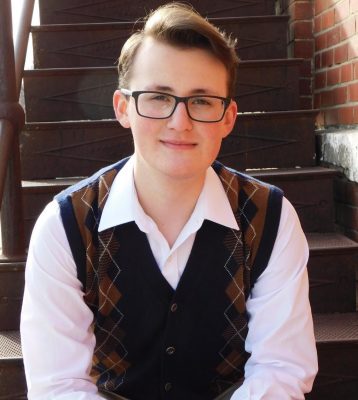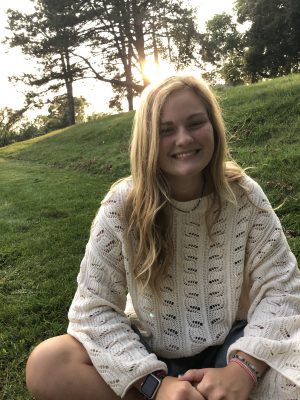Election season revs up on campus
Cornell College students are finding ways to explore the democratic process as the country gets closer to Election Day, Nov. 3.
Students are participating in events, watching political debates, discussing ideas with friends, and figuring out their voting plans.

Assistant Professor of American Politics Megan Goldberg says voting and being engaged in politics is the only way to make sure students have political power and influence over policies that affect their lives.
“College-aged students turn out to vote at much lower rates than older cohorts, and as a result, elected officials may not be as concerned with addressing the issues that matter most to them,” Goldberg said. “Consider how much political energy is spent on social security and Medicare–it’s because senior citizens turn out at some of the highest rates! Helping increase turnout for your age group can motivate your elected officials to pursue policies with your demographic in mind.”
Junior Blake Thornton, the chairman of the Cornell College Republicans, is passionate about many policies and issues but says the most important one to him is the national debt. His organization has been tabling in the Thomas Commons for Block 2 and planning other events such as a reading of Ludwig von Mises’ “The Anti-Capitalistic Mentality” on Zoom on Oct. 25.

The junior archaeology major from Avoca, Iowa, recently sent his absentee ballot back to his hometown.
“For me, voting is not only my civic responsibility as an Iowan and an American citizen, but it is a way of ensuring that what our Founding Fathers fought for and created lasts for another four years,” Thornton said. “No matter who you support, or what party you are with please vote. There are several options available to you from voting in person to mailing in an absentee ballot.”
Sophomore Emma Klinkhammer is planning to vote on Election Day, Nov. 3. The Mount Vernon native who is a double major in international relations and politics is a registered Democrat. Growing up in Iowa, she has treasured the front row seat in the election process saying she would bring family and friends with her to candidate events to become a more informed voter. She is passionate about issues such as gun violence and climate change.

“If I had any message to my fellow student voters, it would be that your vote is an investment into your future,” Klinkhammer said. “Vote for the planet you live on, and for those around you–even if they don’t look like you do. Be kind, love your neighbors, and keep pushing forward.”
And for those who haven’t decided who to vote for, Goldberg says the current political environment can be extremely overwhelming with the constant ads and stream of news.
She suggests that if voters still haven’t decided, a good plan is to rely on people they trust who have already made their decision.
“Talk with them about how they made their decision, and ask for their advice,” Goldberg said. “There’s so much information out there, and it’s really hard to know how to interpret everything. If you want to go about it yourself, I would suggest writing down the issues you care the most about–stick to three or four–and research the candidates on just those issues, and make your decision based on what is most important to you.”
Students with technical questions about the voting process can contact Program Director for Civic Engagement Samantha Hebel with the Civic Engagement office at shebel@cornellcollege.edu.
Cornell College does not endorse any candidate seeking elected office or any political party. The college does support critical thinking and analysis of political candidates and how to become civically engaged in the American democratic process.
Tags: politics



